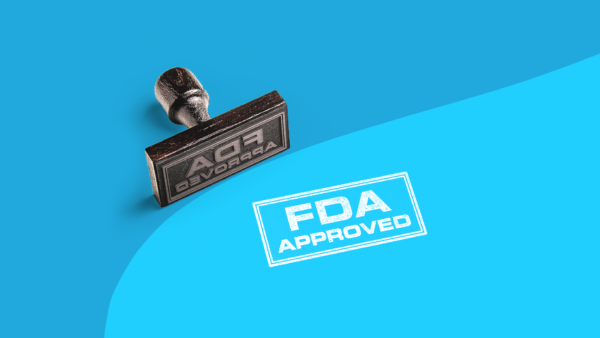Key takeaways
Ibuprofen is a nonsteroidal anti-inflammatory drug that relieves pain, fever, and inflammation symptoms. Antibiotics are used to treat bacterial infections.
When you have a bacterial infection, you may want to take ibuprofen to relieve your symptoms until your infection goes away. Ibuprofen is generally safe with most antibiotics, except quinolone antibiotics and vancomycin.
Always check with a healthcare provider or pharmacist before combining ibuprofen and your antibiotic. There may be other individual factors that may affect the safety of this combination of drugs.
If you take an antibiotic to treat a bacterial infection, you may want to know if you can take ibuprofen. Ibuprofen is a nonsteroidal anti-inflammatory drug (NSAID), which you can find under brand names such as Motrin or Advil. It is available in lower doses over the counter and higher doses by prescription. All NSAIDs and antibiotics are approved by the U.S. Food and Drug Administration (FDA). Although ibuprofen does not treat bacterial infections, it can help relieve symptoms of pain, inflammation, and fever. Ibuprofen is compatible with most antibiotics, but not all. Before taking ibuprofen with your antibiotic, you should check with your healthcare provider or pharmacist to ensure it is safe.
RELATED: Ibuprofen dosage, forms, strengths
Can you take ibuprofen and antibiotics?
There are different classes of antibiotics, and each class has significant differences in drug interactions. So, whether it is safe to combine ibuprofen with an antibiotic treatment depends on which antibiotic you are taking. Below are some common classes of oral antibiotics and their compatibility with ibuprofen. Keep in mind these are general guidelines. You may have a medical condition or another reason why you cannot take certain medications separately or together, so always check with your healthcare professional for medical advice.
- Penicillin antibiotics include amoxicillin, Augmentin (amoxicillin/clavulanate), and penicillin. These types of antibiotics are generally safe to take with ibuprofen.
- Cephalosporin antibiotics like Keflex (cephalexin), Omnicef (cefdinir), and Ceftin (cefuroxime) are generally safe to take with ibuprofen.
- Macrolide antibiotics include Biaxin (clarithromycin), Zithromax (azithromycin), and erythromycin. They are generally safe to combine with ibuprofen.
- Sulfa antibiotics, such as Bactrim (sulfamethoxazole/trimethoprim), are usually safe to take with ibuprofen.
- Lincosamide antibiotics like Cleocin (clindamycin) are generally safe to combine with ibuprofen.
- Tetracycline antibiotics like tetracycline, doxycycline, and minocycline are generally safe to combine with ibuprofen.
- Quinolone antibiotics include Cipro (ciprofloxacin) and levofloxacin. Quinolone antibiotics combined with ibuprofen may increase the risk of central nervous system stimulation and seizures. Some clinical trials have found that combining an NSAID with very high doses of quinolone antibiotics has resulted in seizures. Your doctor may recommend a different type of painkiller, such as Tylenol (acetaminophen).
- Vancomycin is an antibiotic used to treat certain types of serious bacterial infections. Both vancomycin and ibuprofen, on their own, can cause kidney problems. Together, vancomycin and ibuprofen may result in an additive toxic effect on the kidneys. If you are taking vancomycin, check with your healthcare provider about a different treatment option for pain relief, such as Tylenol (acetaminophen).
RELATED: Antibiotics 101: What are they and why do we need them?
What happens if you take ibuprofen and antibiotics together?
Common side effects of ibuprofen include:
- Stomach problems like constipation, gas, or bloating
- Dizziness
- Nervousness
- Tinnitus (ringing in the ears)
Serious side effects may include high blood pressure, cardiovascular events like blood clots, heart attack, and stroke, as well as gastrointestinal bleeding, ulcers (sores), and perforation (holes). These side effects apply to other NSAIDs, such as Aleve (naproxen), Celebrex (celecoxib), Voltaren (diclofenac), and Mobic (meloxicam). Taking NSAIDs with certain other medications, such as blood thinners (warfarin, for example) or antidepressants, increases the risk of bleeding.
Side effects of antibiotics vary based on the type of antibiotic. Some general antibiotic side effects include:
- Stomach problems like nausea, vomiting, and diarrhea
- Dizziness
- Rash
- Yeast infection
Serious side effects may include allergic reactions and antibiotic-associated diarrhea, both of which could be severe or life-threatening.
In many cases, taking ibuprofen and an antibiotic together is safe, and ibuprofen will not affect the antibiotics’ effectiveness. Sometimes, you’ll need to use caution or avoid the combination. For example, suppose you have gastrointestinal side effects from your antibiotic, and you know that ibuprofen is usually hard on your stomach. In that case, you may want to use Tylenol instead—rather than taking two drugs that affect your stomach. Always check with a healthcare provider or pharmacist, who can look at your list of medications and check for potential interactions.
When would you need to take antibiotics and ibuprofen?
There are many cases when an individual might take ibuprofen and an antibiotic. For example:
- Suppose you have strep throat or any type of bacterial infection, such as a urinary tract infection (UTI). In that case, the antibiotic treats the bacterial infection, while ibuprofen helps relieve symptoms like pain, inflammation, and fever.
- If your dentist prescribes an antibiotic to treat an infection of the teeth or mouth, you may want to take ibuprofen to help with the associated pain and inflammation.
Is it safe to take antibiotics and ibuprofen at the same time?
With the exception of quinolone antibiotics and vancomycin, most antibiotics can be safely combined with ibuprofen. Check with your healthcare provider or pharmacist before combining ibuprofen with an antibiotic. Always tell your healthcare provider about all your medications, including prescription medications, over-the-counter drugs, vitamins, and supplements. This helps ensure your safety and helps prevent drug interactions.
Sources
- Ibuprofen, National Library of Medicine DailyMed (2021)
- Ibuprofen, MedlinePlus (2023)
- Ibuprofen, PDR
- Ibuprofen, StatPearls (2023)
- Vancomycin, StatPearls (2023)
- Antibiotics, Cleveland Clinic (2023)











